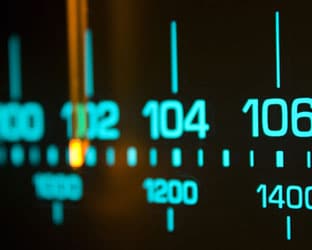 A coalition of small radio companies are scratching their heads – a coalition of public watchdogs asked the FCC to impose the same political filing obligations of broadcast television on cable and satellite television services. With no mention of radio whatsoever by the watchdogs, small radio is wondering how it got roped into the proceeding.
A coalition of small radio companies are scratching their heads – a coalition of public watchdogs asked the FCC to impose the same political filing obligations of broadcast television on cable and satellite television services. With no mention of radio whatsoever by the watchdogs, small radio is wondering how it got roped into the proceeding.
The petitioners, Local Girls and Boys Broadcasting Corporation, MBC Grand Broadcasting, Inc., North County Communications, LLC, Texas Public Radio, and United Ministries, describe themselves as “Local and Regional Small Radio Broadcasters” (LRSB) and note their efforts to provide local service to their communities is already under pressure from competition from internet and satellite audio services and general economic malaise. Further, the regulatory burden under which they operate is not significantly different than that of large-market radio stations, the difference being that the large market stations have a much greater opportunity to earn enough money to pay for it.
Indeed, LRSB says that in order to function more efficiently and profitably, it is seeking less regulation. “Any move to require online public files for small radio stations would do just the opposite, resulting in even more pressure on local radio operators —and on station employees who are often already pushed to their limits.”
The petitioners point out that they are not mentioned in the original petition that kicked off the proceeding,
Thirdly, they argue that any move to add such a burden to radio need be its own proceeding, and a lengthy period of time must be provided to small radio stations if requirements are imposed.
LRSB pointed out, “Although television stations were required to upload the contents of their already existing paper public files, the cost associated with such an effort would have a disproportionately significant budgetary impact on small radio station operators with already limited technical and staff resources. In order to minimize the risk of online public file requirements becoming the proverbial ‘straw that breaks the camel’s back’ for an already struggling small station teetering on the edge of going silent, the Commission should not require small radio stations to upload the contents of existing public files, or at least should provide stations with an extended period during which they could incrementally add those materials to the online file. In any event, the Commission should also announce that it will provide radio broadcasters with a waiver of any online public file requirements upon a showing that maintaining an online public file would impose an unreasonable burden on a station due either to undue economic hardship or as a result of technical impediments.”
LRSB’s arguments were filed under the auspices of Garvey Schubert Barer attorneys Brad C. Deutsch, Erwin G. Krasnow, Melodie A. Virtue and John M. Pelkey.
Deutsch told RBR-TVBR, “In my view, it would be nothing short of impulsive for the Commission to consider adding 15,425 radio stations — a 7-fold increase over the number of TV stations currently using the Commission’s online public file database — to the mix at this early stage.”
RBR-TVBR observation: Hey FCC: Primum non nocere! Our American version of this piece of Latin wisdom is “First, do no harm.” A cost-benefit analysis is clearly warranted in this instance. Radio in general is unfortunately not the prime vehicle for political advertising that it could and should be, and small market radio rakes in but a few droplets out of the flood of political cash that is injected into the media each election year.
It is not worth imposing a new burden on stations performing the noble task of providing quality radio service to their communities on a shoestring budget, and possibly driving many into the red-ink zone, merely to tabulate those few droplets of campaign cash.
Adding cable and satellite to the political reporting class makes perfect sense, if for no other reason than to flatten the playing field between those services and broadcast television.
This current proceeding should focus on video only. In addition to the challenges facing small radio owners, there are many other considerations to take into account before putting radio stations public files and political advertising results online, more than enough to warrant a separate and focused audio-only proceeding as the petitioners request.



